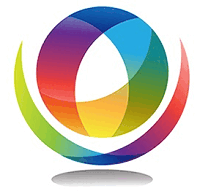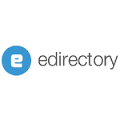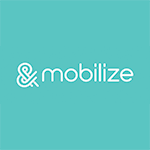Description

360Alumni

RecDesk
Comprehensive Overview: 360Alumni vs RecDesk
360Alumni and RecDesk are both software solutions catering to different needs and markets. Below is an overview of each, detailing their primary functions, target markets, market presence, and key differentiating factors.
360Alumni
a) Primary Functions and Target Markets
-
Primary Functions:
- 360Alumni is a platform designed for alumni engagement and management. It offers features such as alumni networking, event management, job postings, and fundraising capabilities. The platform facilitates communication and engagement through social networking tools and provides a centralized location for managing alumni data.
- It also includes mentoring capabilities, analytics and reporting, email marketing, and a mobile-responsive design.
-
Target Markets:
- The primary target market for 360Alumni includes educational institutions such as universities and colleges, alumni associations, and non-profit organizations seeking to improve engagement and communication with their alumni networks.
b) Market Share and User Base
- Market Share and User Base:
- 360Alumni holds a position in the niche market for alumni management solutions. While specific market share metrics might not be publicly available, its user base mainly consists of educational institutions across various regions, leveraging these tools to build robust alumni communities.
c) Key Differentiating Factors
- Key Differentiators:
- Comprehensive alumni network tools focusing on engagement, events, and fundraising.
- Emphasis on community-driven features like networking and mentoring.
- Integrated analytics and reporting for tracking engagement and fundraising effectiveness.
- A relatively specific focus on educational institutions and alumni associations.
RecDesk
a) Primary Functions and Target Markets
-
Primary Functions:
- RecDesk is a recreation management software aimed at managing community and recreational facilities. It provides features such as program registrations, facility reservations, membership management, league management, and payment processing.
- The software is designed to streamline operations for parks and recreation departments, managing registrations, memberships, billing, and reporting all from a user-friendly interface.
-
Target Markets:
- The target market for RecDesk includes municipal and community recreation departments, YMCA/YWCA organizations, and other community-focused entities that offer recreational programs and facilities.
b) Market Share and User Base
- Market Share and User Base:
- RecDesk is more mainstream within the recreation management sector compared to 360Alumni within the alumni management sector. Its user base prominently includes municipal recreation departments and community organizations across the United States.
- While RecDesk has a significant presence in its niche, comprehensive market share data would require more specific industry reports.
c) Key Differentiating Factors
- Key Differentiators:
- Focused on recreation and community management rather than educational institutions.
- Provides robust functionality specific to managing recreational programs and facilities, like program registrations and facility scheduling.
- Known for ease of use and comprehensive support for community engagement and operations management.
- Facilitates operations such as online registrations and scheduling efficiently, which are crucial for municipal and community centers.
Comparative Summary
- Functional Focus: 360Alumni focuses on alumni relations and engagement management, while RecDesk is centered on recreational and community management.
- Target Audience: The primary audiences also differ, as 360Alumni serves educational institutions, whereas RecDesk serves community-based and municipal recreation entities.
- Market Reach: Both have strong footholds in their respective niches, but RecDesk has broader applicability for community recreation, possibly leading to a larger overall user base in the recreation management sector.
- Differentiation: The distinguishing features lie in the specific functionalities aligned with the needs of their target audiences, community networking for 360Alumni and program/facility management for RecDesk.
Overall, both software solutions are tailored for their unique audiences and provide specialized functions to meet specific organizational needs.
Contact Info

Year founded :
Not Available
Not Available
Not Available
Not Available
Not Available

Year founded :
Not Available
Not Available
Not Available
Not Available
Not Available
Feature Similarity Breakdown: 360Alumni, RecDesk
When comparing 360Alumni and RecDesk, it's important to note that they cater to different audiences—360Alumni primarily serves alumni networks and associations, while RecDesk focuses on recreation management for communities and organizations. Despite these differences, there might be some overlap in functionality due to their broad use cases involving membership management and community engagement. Here’s a breakdown of their feature similarities and differences:
a) Core Features in Common
-
Member/Contact Management:
- Both platforms offer systems to manage contacts or members. 360Alumni focuses on alumni directories, while RecDesk manages community members.
-
Event Management:
- Event creation and management are available in both platforms, allowing users to plan, organize, and track events.
-
Communication Tools:
- Each platform provides ways to communicate with members or users, though 360Alumni emphasizes alumni engagement and networking, while RecDesk focuses more on community notifications.
-
Reporting and Analytics:
- Reporting tools in both platforms support tracking engagement, registrations, and other metrics important for community and event planning.
b) User Interface Comparison
- 360Alumni:
- The interface is typically designed around community networking and directory features, focusing on ease of connections and communication among alumni. It emphasizes engagement settings with social networking-like elements.
- RecDesk:
- Its UI is oriented towards simplicity and functionality for community administrators managing facilities, programs, and memberships. The dashboard usually prioritizes operational tasks over networking.
c) Unique Features
-
360Alumni:
- Alumni Networking: Offers a robust platform for alumni to network, find mentors, and connect with other graduates.
- Fundraising Tools: Integrates tools for fundraising, often crucial for alumni associations looking to generate donations.
- Career Services: Job boards and career service integrations cater specifically to alumni communities.
-
RecDesk:
- Facility Management: Provides detailed tools for managing recreational facilities, including bookings and maintenance.
- Program Registrations: Tailored for organizing and managing community programs and classes, with specific features for registration portals and waitlists.
- Point of Sale (POS): Integrated POS systems support on-site purchases related to recreational activities and facilities.
Each platform brings unique strengths tailored to its primary audience, while sharing some foundational features like user management and event organization.
Features

Community Engagement
Event Management
Fundraising Tools
Mentoring Programs

Program Management
Communication Tools
Financials
Facility Reservations
Membership Management
Best Fit Use Cases: 360Alumni, RecDesk
Sure, let's explore the best fit use cases for 360Alumni and RecDesk, focusing on the types of businesses or projects for which each is ideally suited, as well as how they cater to different industry verticals or company sizes.
a) Best Fit Use Cases for 360Alumni:
Types of Businesses or Projects:
-
Alumni Associations and Networks: 360Alumni is designed specifically for institutions or organizations that manage alumni relations. This makes it an excellent choice for universities, colleges, and schools that seek to build an engaging alumni community.
-
Non-Profit Organizations: Non-profits looking to maintain strong relationships with their former members, donors, or volunteers can use 360Alumni to enhance engagement and participation.
-
Professional Associations: Any business or association that relies on networking and community building with former members or associates would benefit from the functionalities of 360Alumni.
Features and Benefits:
- Networking and Engagement Tools: 360Alumni provides platforms for event management, fundraising, and community engagement which are crucial for meaningful alumni interaction.
- Career Services: Offers job boards and resources that are specifically useful for alumni seeking career development opportunities.
- Data Management: Helps institutions manage large databases of alumni, track engagement and participation, and personalize outreach campaigns.
Industry Verticals and Company Sizes:
- Primarily serves education sectors and non-profits, regardless of size, but is particularly beneficial for larger institutions with extensive alumni networks.
b) Best Fit Use Cases for RecDesk:
Types of Businesses or Projects:
-
Recreation Departments and Centers: RecDesk is designed to streamline operations for community centers, recreational facilities, and parks departments, making it an excellent choice for municipal organizations.
-
Community Organizations and Clubs: Ideal for managing member activities, events, and classes efficiently, RecDesk can be used by any club or community organization offering organized events and programs.
-
K-12 Schools: Schools that offer extracurricular activities and after-school programs can use RecDesk to manage registrations and schedules.
Features and Benefits:
- Program and Activity Management: Tools for scheduling, registration, and payment processing that simplify managing a wide range of community activities.
- Facility Management: Efficiently manage facility bookings and maintenance schedules, ensuring optimal use of resources.
- Membership Management: Provides an integrated system for handling membership enrollments, renewals, and member communication.
Industry Verticals and Company Sizes:
- Geared towards local government entities and community-based organizations, RecDesk can scale from small towns to large urban recreation departments.
In summary, 360Alumni is best suited for educational institutions and organizations dependent on strong network and alumni relations. In contrast, RecDesk is the preferred choice for entities requiring robust management of recreational and community programs. Each product is tailored to cater to specific needs within their respective industry verticals and can accommodate varying organizational sizes.
Pricing

Pricing Not Available

Pricing Not Available
Metrics History
Metrics History
Comparing undefined across companies
Conclusion & Final Verdict: 360Alumni vs RecDesk
To provide a conclusion and final verdict between 360Alumni and RecDesk, let's consider the overall value, pros and cons, and specific recommendations for users trying to decide between the two options.
a) Best Overall Value
Determining the best overall value between 360Alumni and RecDesk primarily depends on the specific needs and goals of the user, as both platforms serve different purposes. 360Alumni is designed for alumni engagement and networking, while RecDesk is tailored to managing recreational facilities and community programs.
If your focus is on fostering community engagement and building lasting alumni relationships, 360Alumni is likely to provide the best value. However, if your priority is efficiently managing recreational programs, facility bookings, and related administrative tasks, then RecDesk represents the better value.
b) Pros and Cons
360Alumni
Pros:
- Tailored for alumni engagement, with features such as event management, fundraising, and networking tools.
- Integrated communication tools facilitate connection and interaction within the alumni network.
- Offers analytics and reporting for tracking alumni engagement and involvement.
Cons:
- Specialized for alumni communities, limiting its utility for other purposes.
- May require stakeholders to be proactive in participation to maximize its potential.
- Could face integration challenges with systems not focused on alumni networks.
RecDesk
Pros:
- Comprehensive solution for managing recreational programs and community events.
- Streamlines facility booking, registration, and payment processing.
- User-friendly interface with flexibility for a variety of community services.
Cons:
- Focused on recreation management, so less suitable for alumni networking needs.
- May not have dedicated features for community building beyond program management.
- Can be an overkill for smaller organizations with simple program management needs.
c) Specific Recommendations
For users deciding between 360Alumni and RecDesk, it's crucial to assess your organizational needs:
-
Educational Institutions and Alumni Associations: If your primary goal is to engage alumni, create networking opportunities, and manage alumni-centric events, 360Alumni is the recommended choice. Its specialized features will foster stronger connections and active participation among alumni.
-
Community Centers and Recreational Organizations: For managing facilities, organizing community events, and streamlining administrative tasks, RecDesk will be more effective. Its comprehensive suite designed for program management can significantly enhance operational efficiency.
Ultimately, the decisive factor comes down to the core functionality required by your organization and how each platform aligns with your strategic objectives. Consider trialing each product, if possible, to assess which aligns best with your operational needs and offers the potential for the greatest return on investment.
Add to compare
Add similar companies



